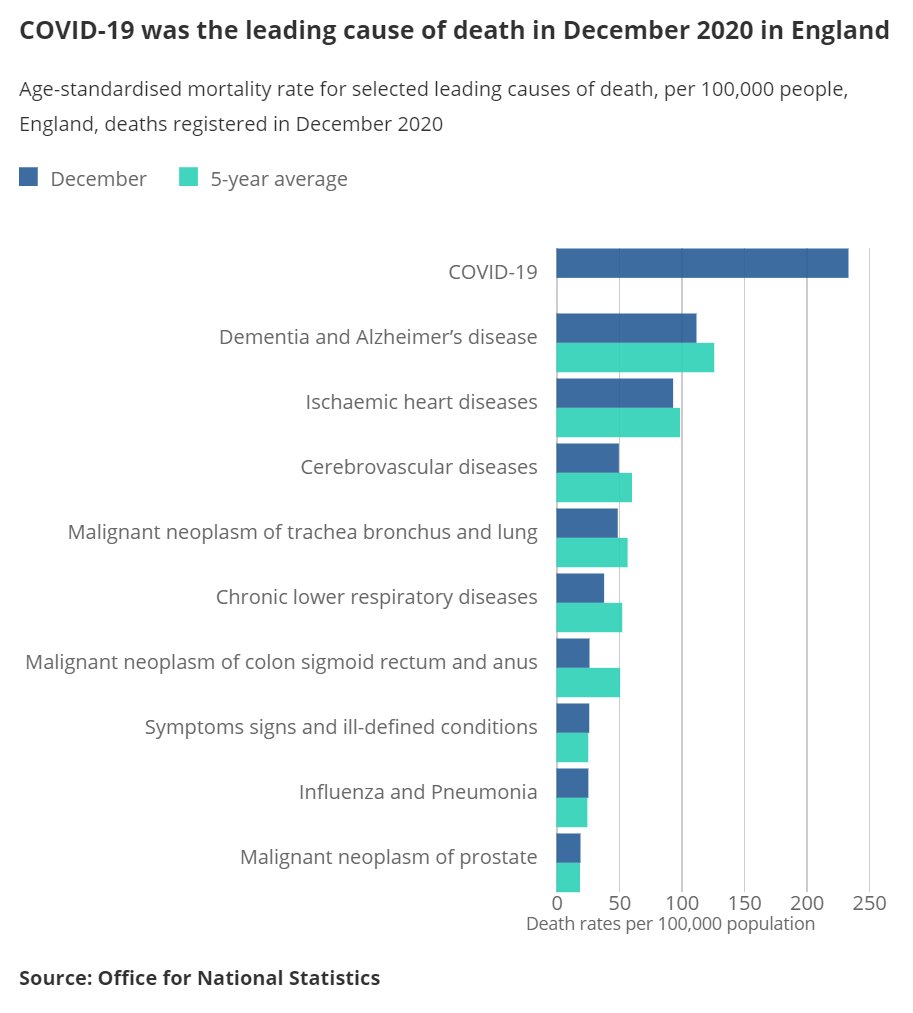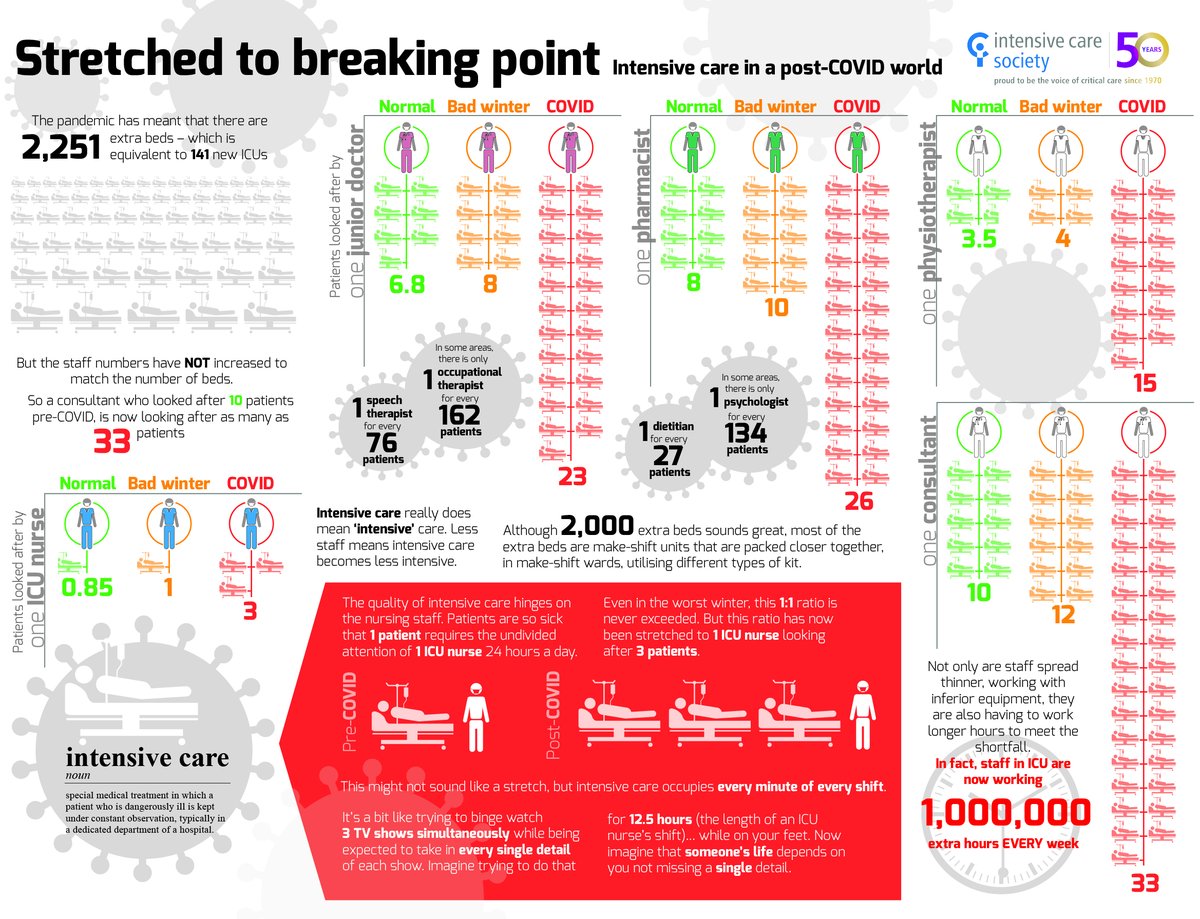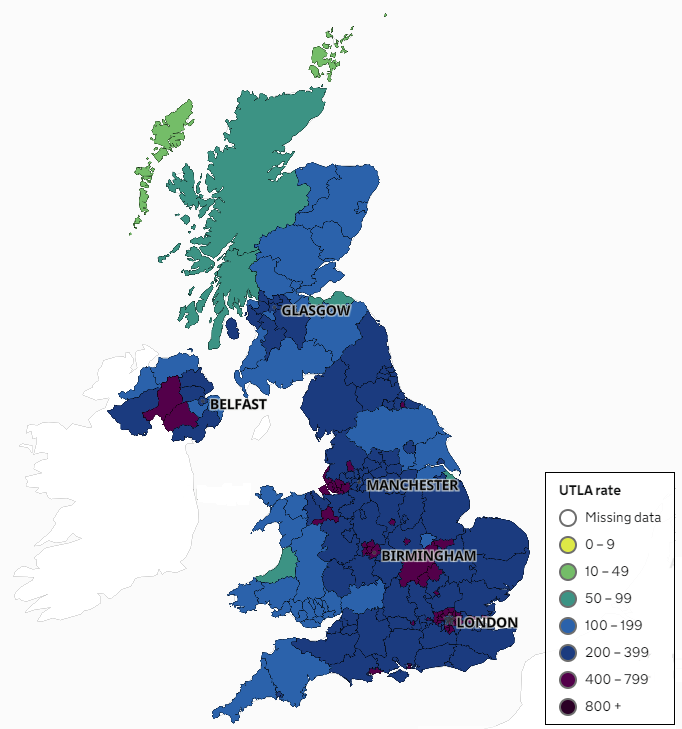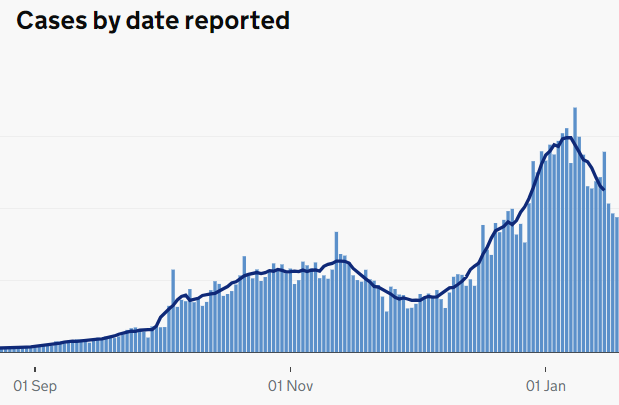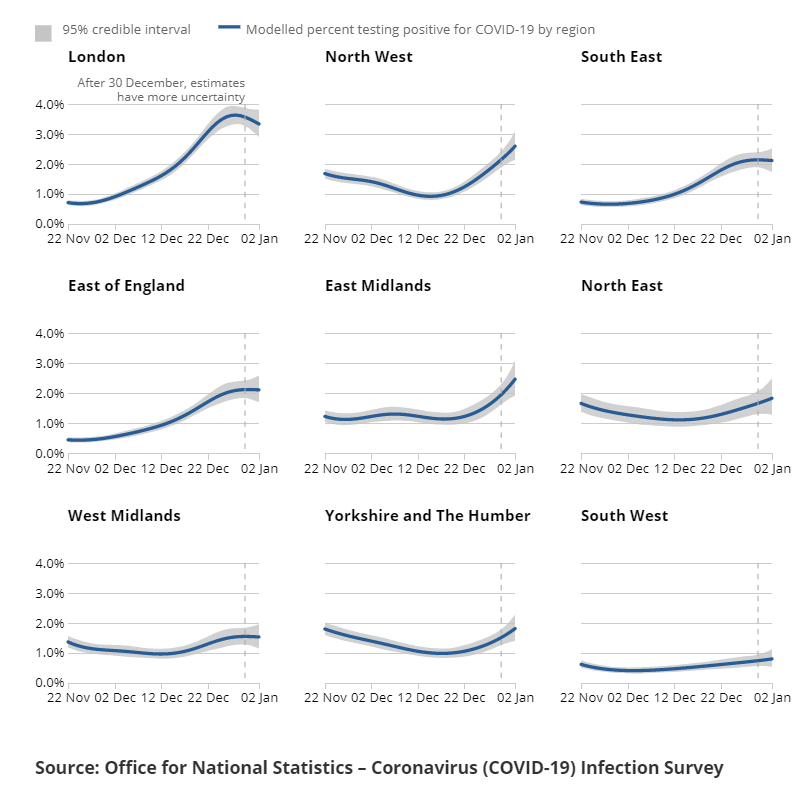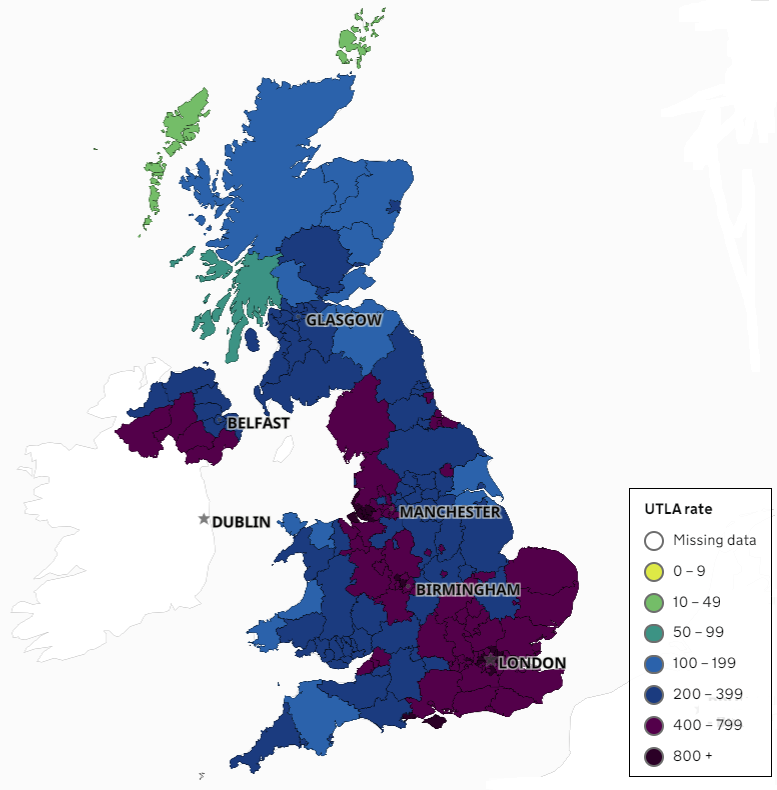
More positive news as new coronavirus infections subside in the UK. The NHS is looking to recovery from the impacts of COVID and planning the re-boot of usual healthcare which has suffered badly in the past 12 months. We have a huge backlog to clear. 1/10
bbc.co.uk/news/uk-562007…
bbc.co.uk/news/uk-562007…
Before we think about the recovery, the usual points need to be made – we still have more than 15,000 hospital in-patients with COVID…. 2/10 

….and we still have more than 2000 COVID patients in ventilated intensive care beds (almost half the usual footprint of ICU in the whole of the UK). So still many months to go before the second wave is over for NHS staff. 3/10 

Catching up with delayed surgery is our biggest challenge as the second wave subsides. Research from @_tomabbott, @_alexfowler & others suggests 2 million surgical procedures have been cancelled in the English NHS as a result of the pandemic so far…. 4/10
academic.oup.com/bjs/article/10…
academic.oup.com/bjs/article/10…
Keeping surgical patients ‘COVID safe’ is complicated and makes care inefficient. Very few patients develop COVID at the time of surgery but those who do are much more likely to die. Despite the huge backlog, strict infection prevention remains vital. 5/10
medrxiv.org/content/10.110…
medrxiv.org/content/10.110…
Meanwhile many NHS staff are badly in need of a rest for both their mental and physical health. Many of us have not been able to take all our annual leave. We don’t know how this will impact plans to clear the backlog in surgery but it will certainly need careful handling. 6/10 

The NHS vaccination campaign has been a huge success with more than 19 million people receiving their first vaccine dose. Progress compares well to similar countries in Europe (map from Google News): 7/10 

But we must be extremely cautious with any assumptions that vaccination may allow us to easily control the coronavirus. New infections are on the rise in some European countries and will spread more easily as travel restrictions ease (map: Google News). 8/10 

This is important because the NHS cannot fail to be prepared for a large third wave, but we must plan for this at the same time as planning to re-boot usual NHS services for surgery, cancer, heart disease and all the other illnesses that our patients need care for. 9/10
In summary, the NHS COVID workload is easing but will take months to clear completely. We must now think of those patients waiting for other types of less urgent healthcare, and all the while be ready for a major third COVID wave because we can’t be sure this won’t happen. 10/10 

• • •
Missing some Tweet in this thread? You can try to
force a refresh


